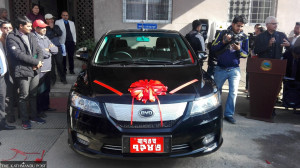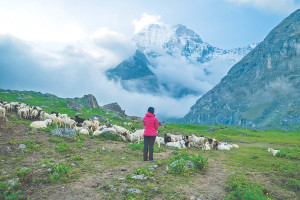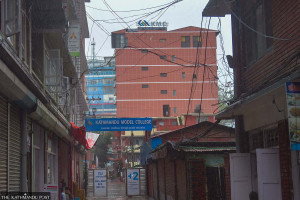Money
Nepali coffee taking over from foreign products
Nepali coffee has started replacing foreign products at most hotels, restaurants, coffee shops and department stores in the Kathmandu valley due to improved processing, packaging.
Nepali coffee has started replacing foreign products at most hotels, restaurants, coffee shops and department stores in the Kathmandu valley due to improved processing, packaging and marketing.
Coffee entrepreneurs said that increased awareness about local products and a growth in the coffee drinking culture had also led to increased consumption of the beverage in the local market.
“Within a few years, we have witnessed a jump in demand from hotels, coffee shops and restaurants in the valley,” said Krishna Ghimire, chairman of Highland Coffee. He added said that his company sold 100 tonnes of coffee last year and plans to sell 125 tonnes this year.
“We used to sell 10 tonnes of coffee two decades ago,” said Ghimire, adding that coffee demand had been rising by 25 percent annually. Nepal’s annual coffee output amounts to 418 tonnes.
Highland Coffee sells roasted coffee under the brand name of Him Café and Neko Coffee in the domestic market. A 250 gm packets of Him Café costs Rs 300 while a 500 gm packet of Neko Coffee costs Rs 550.
Ghimire, who is also the vice-president of the Coffee Producers Association Nepal, said that several companies had started packaging and branding Nepali coffee in a short span of time. There are more than 40 companies involved in the coffee business. Prem Acharya, planning officer at the National Tea and Coffee Development Board (NTCDB), said that more than 55 percent of the total production is consumed in the domestic market.
According to the NTCDB, 523 tonnes of dry parchment coffee was produced on 1,760 hectares across the country in the fiscal year 2011-12. Acharya said that the board had been launching various campaigns to promote domestic coffee. “Though domestic coffee is expensive, it is very healthy as it is organic coffee.”
“I am supplying 60-70 kg of coffee daily to five-star hotels, cafes and restaurants in the country,” said Surya Kumar Lama, manager of Royal Everest Coffee.
He added that a growing number of coffee lovers were switching to Nepali coffee
these days. “There was a time when coffee farmers in the country used to drink imported coffee,” he said. “But now, many households are increasingly consuming local coffee.”
Gulmi, Palpa, Arghakhanchi, Lalitpur, Tanahu, Kavre, Sindhupalchok, Lamjung, Kaski, Gorkha, Syangja, Parbat and Baglung are the major coffee producing districts in the country.




 21.91°C Kathmandu
21.91°C Kathmandu
















